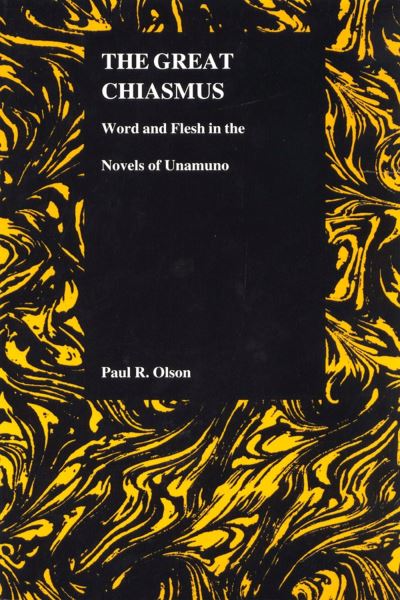
In The Great Chiasmus, Olson explores the use of the grammatical figure called the chiasmus in the work of Miguel de Unamuno. The chiasmus, a reversal in the order of words or parts of speech in parallel phrases, appears on a variety of levels, from brief microstructures (""blanca como la nieve y como la nieve fria""), to the narrative structures of entire novels, and even, Olson suggests, to encompass the stages in Unamuno's novelistic work, forming a chiasmus that can be schematized as ABC:CBA. As a phenomenon of enclosure, the chiasmus is related to other enclosing phenomena such as the image of Chinese boxes and the mise en abyme. These structures, three-dimensional versions of the chiasmus, are also frequent in Unamuno's texts. The chiasmus is also found on the conceptual level, in which Unamuno regards apparent contraties as freely reversible and thus identical. From early adulthood he was fascinated by the Hegelian idea of the identity of pure Being and pure Nothingness, and that concept provides the structure underlying a wide variety of his paradoxes and verbal conceits. In this connection, Unamuno explores concepts usually considered opposites, such as mind and body or spirit and matter (subsumed in the ""Word"" and ""Flesh"" of Olson's subtitle). Olson's close readings of the texts lead to observations on Spanish history, events in Unamuno's life, the psychological dimensions of his characters, and the authorial self found within his texts.
| ISBN: | 9781557532619 |
| Publication date: | 31st March 2003 |
| Author: | Paul R Olson |
| Publisher: | Purdue University Press |
| Format: | Paperback |
| Pagination: | 264 pages |
| Series: | Purdue Studies in Romance Literatures |
| Genres: |
Literary studies: c 1900 to c 2000 Literary studies: fiction, novelists and prose writers Literary theory |